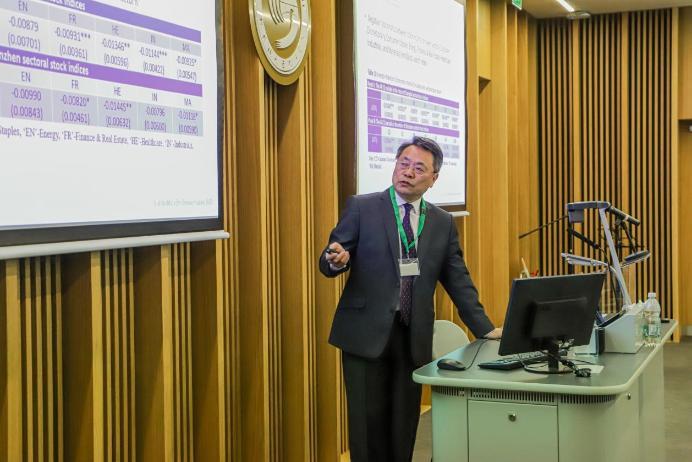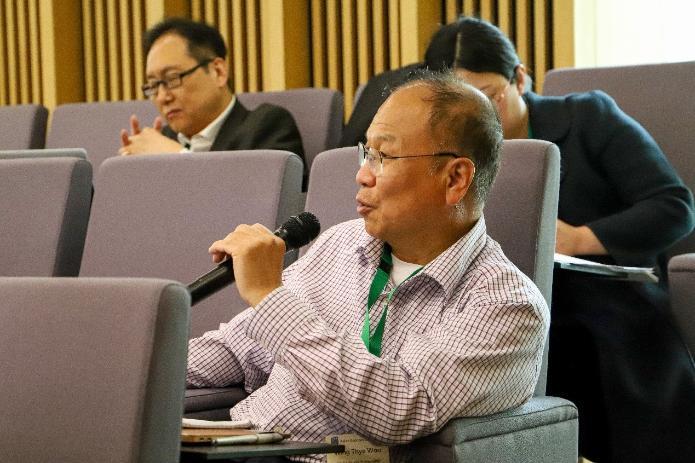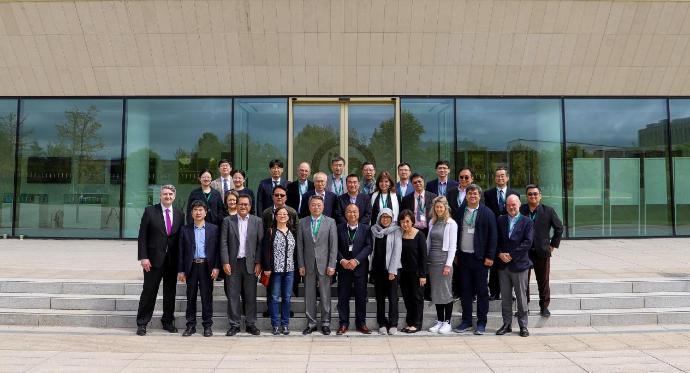Asian Economic Panel successfully held at University College Dublin
The Asian Economic Panel (AEP) was successfully held at University College Dublin on May 11-12, 2023. The forum was hosted by UCD Irish Institute for Chinese Studies (IICS) and UCD Confucius Institute for Ireland (CII), and co-organized by the Center for Sustainable Development (CSD) at Columbia University, the Korea Institute for International Economic Policy (KIEP), the Economic Research Institute for ASEAN and East Asia (ERIA), Sustainable Development Solutions Network (SDSN) of the United Nations, and the Chinese Economic Association (CEA, Europe/UK).
The two-day forum was divided into three sessions: paper presentations, expert reviews and open discussions. Experts discussed the threats and impacts of economic de-globalization in the Cold War 2.0 era, the digital economy, the Sino-US trade war, and China's double-cycle and inner-cycle strategies, exploring possible solutions and sustainable development for Asia's major economies in response to the "New Cold War".

The forum was attended by more than 30 experts and scholars from 14 countries including Ireland, the UK, Japan, Korea, Philippines, Indonesia, and Thailand. Prof. Wing Thye Woo, Vice President (Asia) of the United Nations Sustainable Development Solutions Network (UNSDSN), opened the session with a welcome speech by Prof. Liming Wang, followed by his presentation on the impact of China's internal recycling strategy on the performance of the Chinese stock market and investor behavior in the context of de-globalization, with comments by Prof. Ming Lu from Shanghai Jiaotong University. Professor Fukunari Kimura from Keio University (Japan) pointed out that the geopolitical tensions in Northeast Asia and the confrontation between China and the United States have shifted Japan's economic policy towards national security objectives, and his empirical analysis showed the impact of export controls by the United States and its allies on East Asian manufacturing production supply chains and Japanese trade. Professor Sungbae An from the Korea Institute for International Economic Policy, analyzed the impact of import penetration and export growth on the outcome of the Korean political elections. Professor Maria Joy Abrencia from the University of the Philippines assessed the pros and cons of the choice between ambiguity and coherence in Philippine national strategy in the context of superpower trade decoupling. Professor Chol Bunnag argued that Thailand's response to the US-China trade war has been to diversify its international trade by gradually shifting its trade to other T25 countries, such as ASEAN countries, India and Turkey. Then, Professor Yose Rizal Damuri from the Center for Strategic and International Studies (CSIS) in Jakarta systematically assessed the history of Indonesia's participation in the global economy around three dimensions: trade, investment and production, and examined the current shift to a more inward-looking policy in Indonesia.

In addition, experts at the conference analyzed and discussed the Sino-US relations and the impact of the trade war on the economic development of the Asian region. For example, Prof. Andrew Kam Jia Yi from National University of Malaysia pointed out that Malaysia's neutral stance in the Sino-US trade war has left some room for trade and investment from both sides; Prof. Fredrik Sjoholm from the European Union Institute for Industrial Economics presented the transformation of the EU's economic policy, especially international trade and industrial policy. Prof. Chun-Chien Kuo from the National Taipei University of Commerce explained Taiwan's dilemma and role in economic globalization under Cold War 2.0. Prof. Wei Tian of Peking University reported on an empirical analysis of the role of China's retaliatory tariffs on firms' imports during the US-China trade war.
Professor Huizheng Liu from the Beijing University of Technology used a quasi-natural experiment to study the impact of import trade liberalization on China's export growth pattern from 1995-2020. Prof. Xuan Vinh Vo from Ho Chi Minh City University combed through Vietnam's path toward a digital economy.

The Asian Economic Panel, co-hosted by UCD Irish Institute for Chinese Studies (IICS) and UCD Confucius Institute, was the first offline meeting in Ireland since the COVID-19 pandemic.


